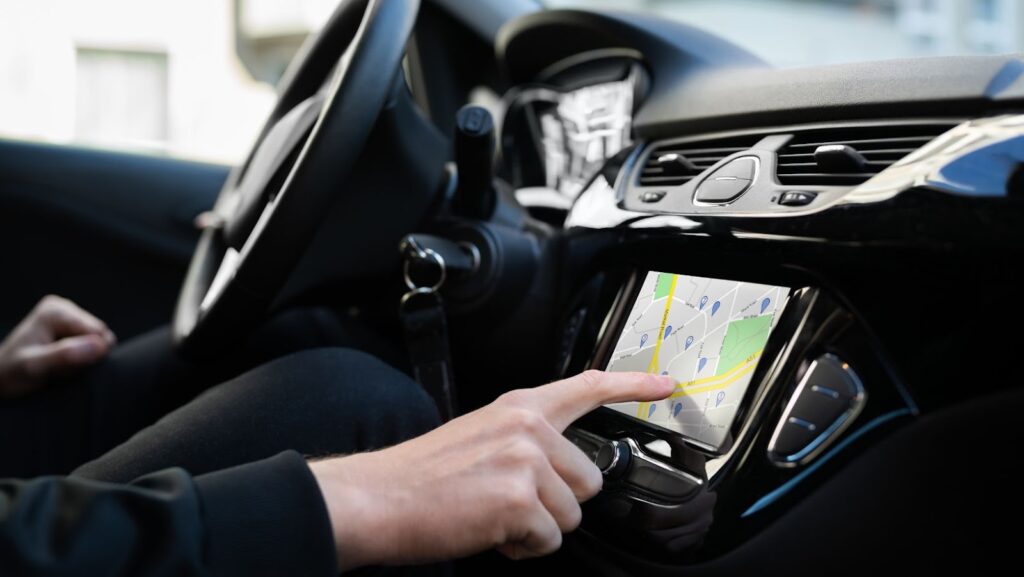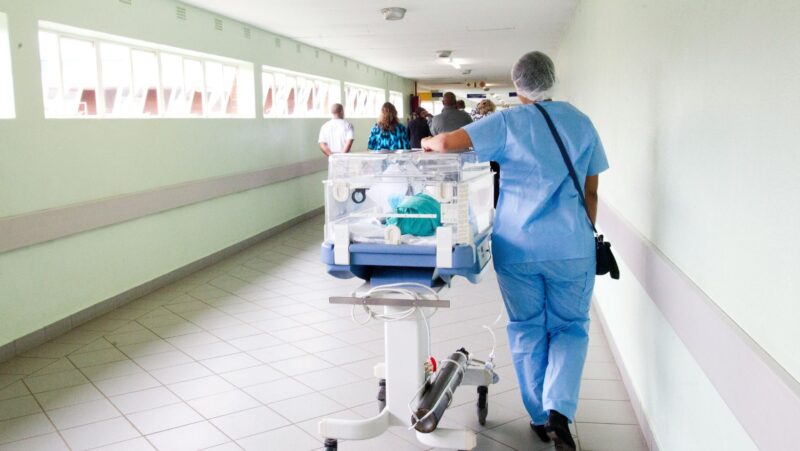
Are you concerned about the safety and well-being of your elderly loved ones? This article offers valuable insights on how GPS trackers can enhance elderly care. By reading further, you’ll learn how these devices can prevent wandering, provide emergency response, and improve health management. The aging population requires effective safety and health solutions. GPS technology is a powerful tool in this regard.
As the population ages, ensuring the safety and health of elderly individuals becomes increasingly important. Elderly GPS trackers are crucial in monitoring and protecting your loved ones. They offer real-time location tracking, emergency alerts, and health monitoring features. These benefits provide peace of mind for caregivers and independence for older people. By understanding the importance of personal GPS tracking devices, you can make informed decisions for better elderly care.
Enhancing Safety and Security By Preventing Wandering With GPS Tracking
Elderly wandering incidents occur more often than many people realize. According to the Alzheimer’s Association, six in ten people with dementia will wander. These incidents pose serious risks, leading to injuries or fatalities. Senior GPS trackers offer a vital solution by providing real-time location updates.
You can monitor your loved one’s whereabouts at any time. If they wander, you receive immediate alerts. This allows you to act quickly, preventing potential harm. The security experts at Tracking System Direct stated, “Families with senior loved ones appreciate how real-time tracking gives them peace of mind, knowing help is always within reach.” But let’s take a closer look at exactly how GPS technology is helping in elderly care.
How GPS Trackers Provide Real-Time Location Updates
GPS trackers are invaluable tools for monitoring and ensuring the safety of your elderly loved ones. Here’s how they work:
- Real-Time Monitoring: Track your loved one’s location instantly, 24/7.
- Immediate Alerts: Receive notifications if your loved one leaves a designated safe zone.
- Easy Accessibility: Use a smartphone or computer to check their location anytime.
- Geofencing Capabilities: Set up virtual boundaries and get alerts if these are crossed.
- Emergency Response: Quickly locate and assist your loved one in emergencies.
Case studies demonstrate the effectiveness of GPS trackers. In one instance, a real-time GPS tracker helped locate an older man within minutes after he wandered from home. His family received an alert and found him safe and unharmed. Another case involved an older woman who frequently wandered away. Her caregivers monitored her movements with a personal GPS tracker and intervened promptly.
These examples highlight the significant role GPS trackers play in elderly care. They enhance safety by reducing the risks associated with wandering and offer a reliable method for ensuring the security of vulnerable individuals.
By investing in a GPS tracker, you can significantly improve the safety and well-being of your elderly loved ones. You gain the ability to track their location in real-time, providing an extra layer of security and peace of mind.
Emergency Response and Fall Detection
Importance of Quick Response in Emergencies
Emergencies can happen at any time, especially for elderly loved ones. Quick response during these times can save lives and prevent serious injuries. Immediate assistance is crucial, particularly in cases of falls, heart attacks, or other medical issues. GPS trackers can significantly enhance emergency response times.
Features of GPS Trackers That Assist in Emergency Situations
GPS trackers come with various features designed to provide rapid assistance in emergencies. Here are some key features that make a difference:
- Panic Buttons: Elderly individuals can press a button to alert caregivers instantly.
- Automatic Alerts: Some trackers detect falls and alert designated contacts automatically.
- Location Tracking: Caregivers can see the exact location of their loved ones in real-time.
- Two-Way Communication: Built-in speakers and microphones allow direct communication.
- Health Monitoring: Some devices track vital signs and send alerts if anomalies are detected.
These features ensure that help can arrive quickly when needed most.
Success Stories or Testimonials from Families and Caregivers
Real-life experiences underscore the effectiveness of GPS trackers in emergencies. For instance, a testimonial shared on the Medical Guardian website highlights the case of Mr. Thomas Green. He fell while gardening and was unable to move. He alerted his daughter by pressing the panic button on his GPS tracker. She called for immediate help, and paramedics arrived within minutes, preventing a more serious situation.
This story highlights the vital role GPS trackers play in elderly care. They provide a safety net, ensuring your loved ones receive quick emergency help. This peace of mind is invaluable for families and caregivers, knowing that assistance is always just a button press away.
Learn more about the best senior safety products with the panic SOS feature at GPS Tracker Shop.
Health Monitoring and Management
Monitoring Health Metrics
GPS trackers now integrate with health monitoring devices, allowing you to track heart rate, blood pressure, and more. This continuous monitoring offers significant benefits. Early detection of health issues becomes possible, enabling prompt medical intervention.
For example, caregivers can respond quickly if an older adult’s heart rate spikes. Data from these devices also help doctors make informed decisions. Continuous health monitoring means fewer surprises and more proactive care.
Medication Reminders and Management
Medication adherence is a common challenge in elderly care. Forgetting doses can lead to serious health problems. Elderly GPS trackers can be programmed to send medication reminders, ensuring your loved one takes their medicine on time.
These reminders can be sent as alerts to older people and their caregivers. This system helps maintain consistent medication routines, improving health outcomes. It also reduces the burden on caregivers, who can trust the technology to assist in this critical task.
By integrating health monitoring and medication management, personal GPS trackers have become powerful tools in elderly care. They offer a comprehensive solution, enhancing both safety and health management for your loved ones.
Supporting Caregivers and Enhancing Quality of Life
Reducing Caregiver Stress
Caregiving for the elderly can be demanding and stressful. Constant worry about their safety can take a toll on caregivers. GPS trackers provide much-needed peace of mind. By knowing your loved one’s exact location, you can significantly reduce your stress.
These devices offer real-time updates, allowing you to focus on other tasks while ensuring their safety. Personal stories from caregivers highlight this benefit. For instance, some caregivers shared how a real-time GPS tracker helped them sleep better at night. Why? Because they knew they would be alerted immediately if a senior family member with dementia or Alzheimer’s disease wandered off.
Promoting Independence and Mobility
Elderly individuals often desire independence and mobility. Balancing this with safety can be challenging. GPS personal trackers support independent living while ensuring safety.
These devices allow your loved ones to move around freely, knowing help is always available. If they wander or need assistance, you get an immediate alert. This balance enhances their quality of life, allowing them to explore and stay active. Increased mobility leads to better physical and mental health.
By using GPS tracking devices, you support both independence and safety. They become tools that improve the overall quality of life for elderly individuals and reduce the stress on caregivers. This comprehensive approach benefits everyone involved, ensuring peace of mind and a higher standard of living.
Choosing the Right GPS Tracker for Elderly Care
Key Features to Look For
When selecting a GPS tracker for elderly care, focus on the essential features:
- Battery Life: Long-lasting batteries ensure continuous monitoring.
- Ease of Use: Simple interfaces are crucial for elderly users.
- Durability: Comfortable and durable designs that withstand daily wear and tear while feeling good.
Comparing different models and brands helps you find the best fit. Look for trackers with strong reviews and reliable performance.
Checklist for Selecting the Best Elderly GPS Tracker:
| Feature | Importance | Considerations |
| Battery Life | High | Choose trackers with batteries that last several days |
| Ease of Use | High | Look for intuitive designs and large, easy-to-press buttons |
| Durability | Medium | Ensure the tracker is waterproof and impact-resistant |
| Real-Time Tracking | High | Verify the tracker provides immediate location updates |
| Emergency Alerts | High | Panic buttons and automatic fall detection are essential |
| Price | Medium | Compare costs, but don’t sacrifice essential features |
Cost and Accessibility
Discussing affordability, real-time GPS trackers range in price. Many high-quality options are available for under $100. However, some insurance or government assistance programs may help cover the costs.
Evaluating cost versus benefits is crucial in elderly care. “Investing in a reliable personal GPS tracker can significantly enhance the safety and well-being of your elderly loved ones,” says the experts at SpaceHawk GPS. The benefits of increased safety, peace of mind, and improved quality of life often outweigh the initial costs.
Frequently Asked Questions
How Do GPS Trackers Assist In Emergency Situations?
GPS trackers assist in emergencies by providing immediate alerts and real-time location data. Many trackers have panic buttons that older people can press to notify caregivers instantly. Some devices detect falls and send automatic alerts. Quick response during emergencies can save lives and prevent serious injuries.
How Do Medication Reminders Improve Elderly Care?
Medication reminders ensure that elderly individuals take their medication on time. This helps maintain consistent medication routines and improves health outcomes. Automated reminders reduce the risk of missed doses, which can lead to serious health problems. They also ease the burden on caregivers, who can rely on technology to assist with this critical task.
How Can Caregivers Reduce Stress While Caring For The Elderly?
Caregivers can reduce stress using technology like GPS trackers for real-time updates and location monitoring. These tools provide peace of mind, allowing caregivers to focus on other tasks. Support groups and respite care services also offer relief. Balancing caregiving duties with personal time is essential for maintaining caregiver well-being.












